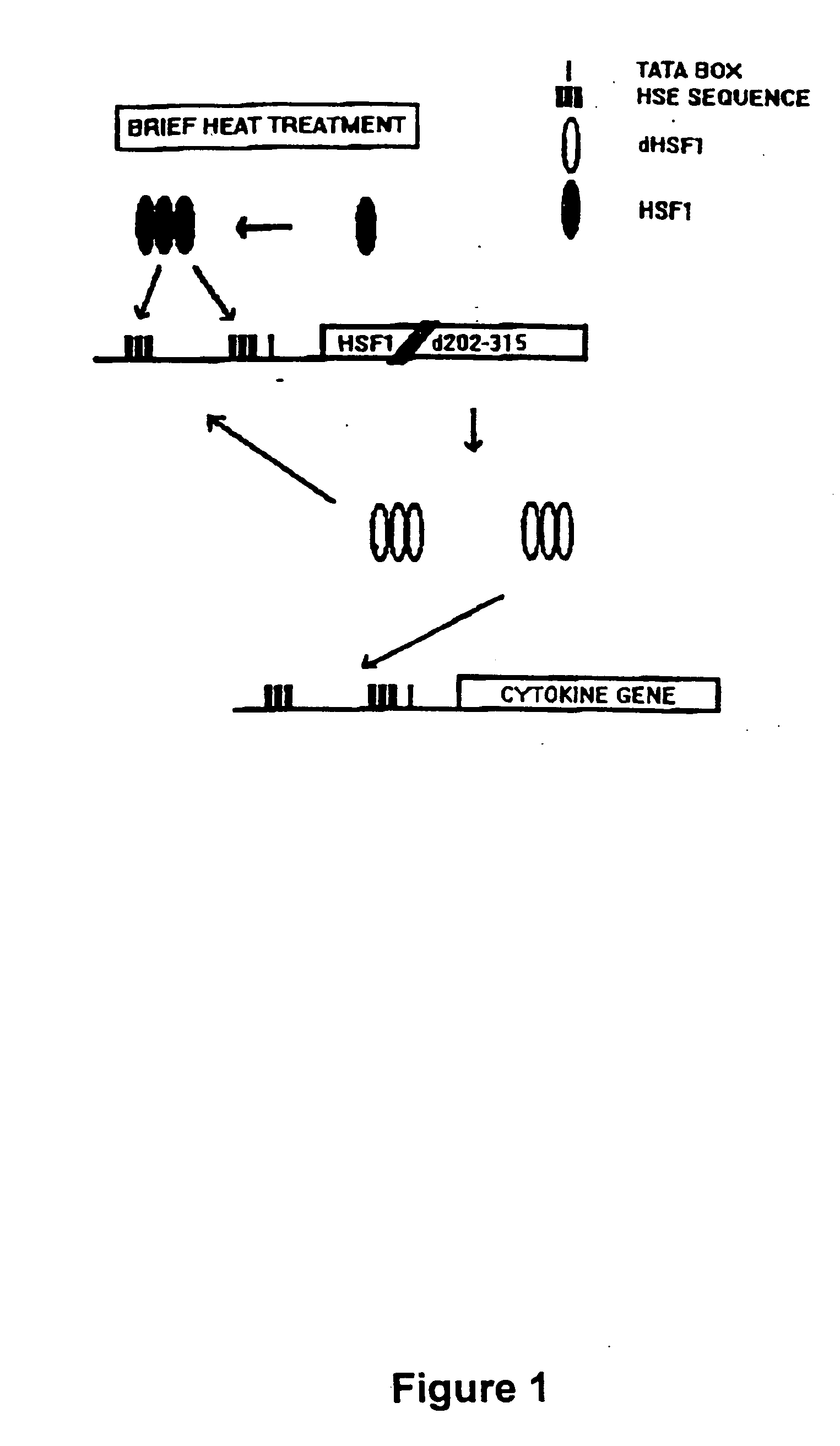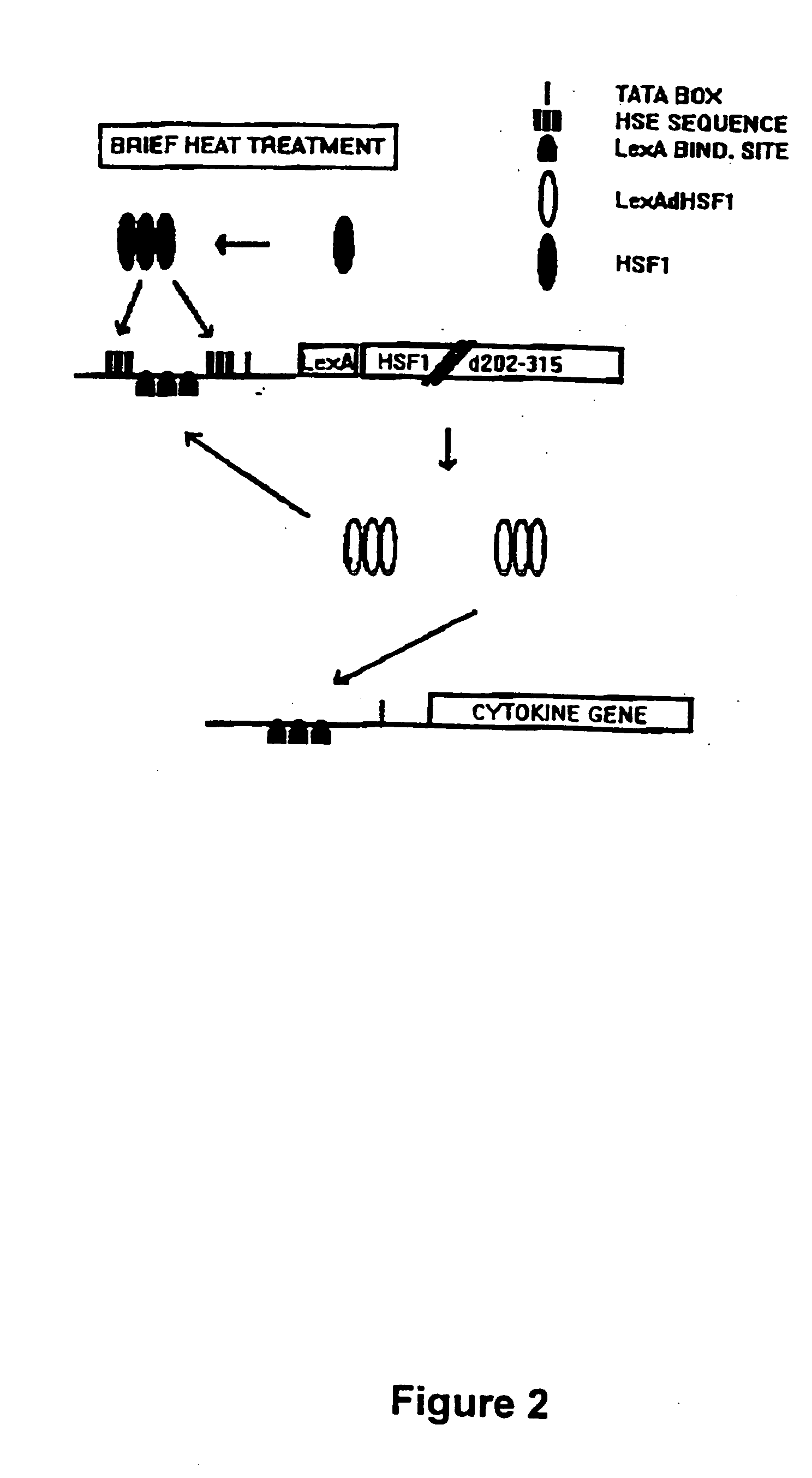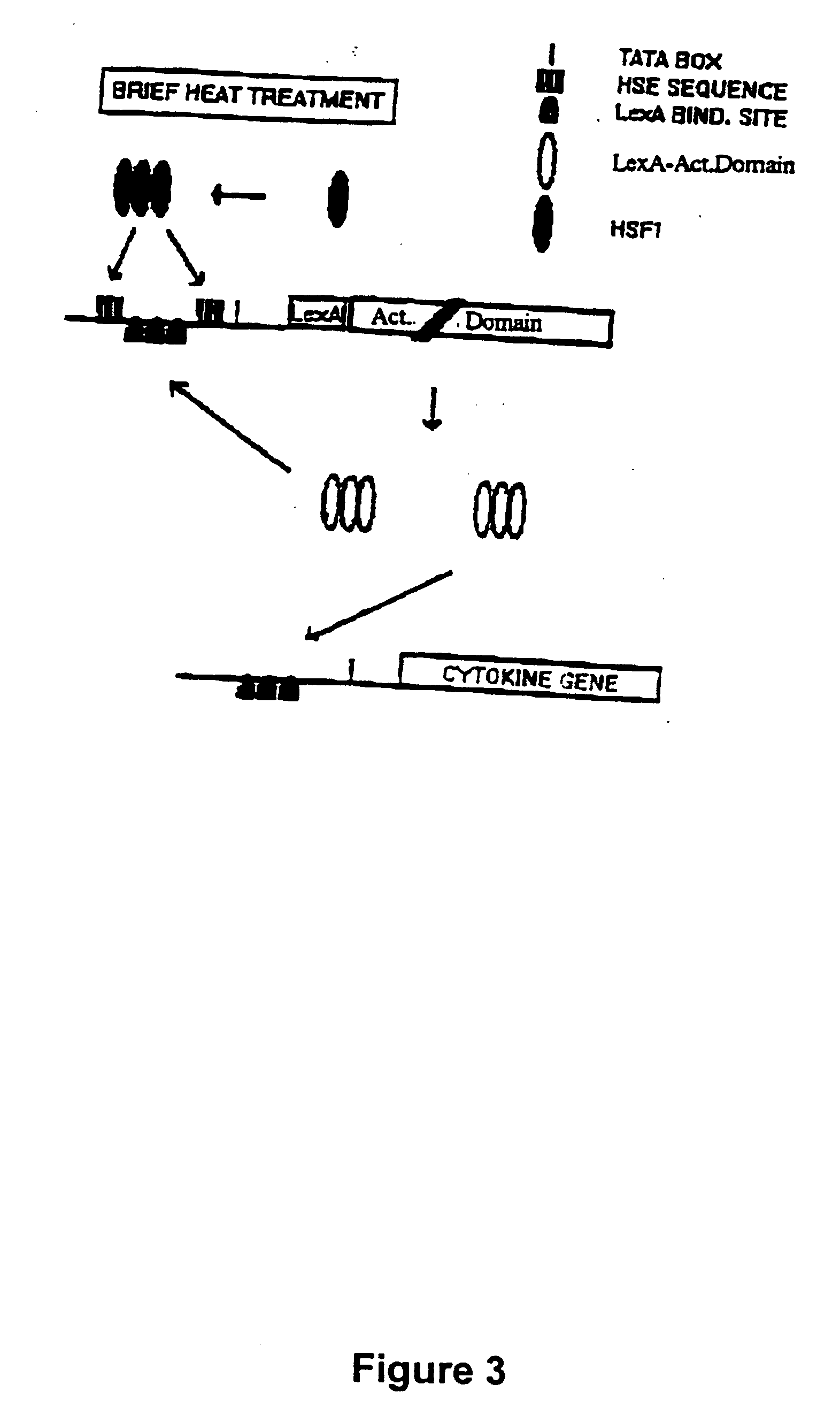Molecular regulatory circuits to achieve sustained activation of genes of interest by a single stress
a gene and regulatory circuit technology, applied in the direction of animals/human peptides, biochemistry apparatus and processes, sugar derivatives, etc., can solve the problems of incompatible cell survival and the inability to maintain gene expression induced by stress promoters beyond
- Summary
- Abstract
- Description
- Claims
- Application Information
AI Technical Summary
Problems solved by technology
Method used
Image
Examples
example 1
[0129] Construction and operation of a test circuit
[0130] The exemplary test circuit contains two elements. The first element consists of a plasmid containing a stress promoter-regulated firefly luciferase gene. To prepare this construct, 10 μg of plasmid 173OR, described by Voellmy et al., Proc. Natl. Acad Sci. USA 89:4949 (1985), are digested with 25 units of restriction enzymes XhoI and HindIII for two hours at 37° C., using a digestion buffer suggested by the supplier (New England Biolabs, Inc., Beverly, Mass.). The digest is electrophoresed on a 0.9% agarose gel, and DNA fragments are visualized by ethidium bromide staining. A 2.7 kbp fragment is excised, electroeluted, purified by phenol-chloroform-isoamyl alcohol and chloroform extraction and ethanol precipitation, and resuspended in a small volume of water. The 2.7 kbp fragment contains the promoter and a portion corresponding to essentially the entire RNA leader sequence of the human hsp70B gene. A 5 μg aliquot of pGL3-Bas...
example 2
[0135] Construction of a circuit for the mass production of human growth hormone
[0136] An example circuit for the production of human growth hormone contains the following two elements: hsp70B-mutated HSF1 and a plasmid containing a cDNA gene encoding human growth hormone functionally linked to the hsp70B promoter. The latter plasmid can be plasmid 17hGHdhfr. Dreano et al., Gene 49:1 (1986).
[0137] The operation of the circuit is as follows. HeLa cells transfected with p17hGHdhfr do not produce growth hormone in the absence of stress. When cells are stressed by a 42° C. / 1 hour heat treatment, expression of growth hormone is induced and can be measured in the medium by a standard radioimmunoassay, as described, for example, by Dreano et al., Gene 49:1 (1986). Expression of growth hormone ceases about one day after heat treatment. In contrast, expression of growth hormone continues in cells co-transfected with p17 hGHdhfr and phsp70B-mutated HSF1 for several days after heat treatment...
example 3
[0138] Preparation and analysis of a construct comprising a firefly luciferase gene operably linked to a combination promoter (Hsp70 / E / GRE) activatable by stress and active EcR / RXR
[0139] E / GRE-fluc was constructed by ligation of a HindIII-SalI fragment from GL3B (Promega Corp.) including firefly luciferase-coding sequences and HindIII / XhoI-digested pIND DNA. Reporter gene construct Hsp70-fluc was obtained by subcloning promoter and RNA leader sequences of the human hsp70B gene from OR173 into a plasmid containing a firefly luciferase gene. To prepare Hsp70 / E / GRE-fLuc, an SgfI site was inserted in the Hsp70B 5′untranslated region present in Hsp70-fLuc by the QuikChange procedure (Stratagene Corp.) using primer 5′-CAGCCTCCGTGGCCTCGCGATCGCAGCATCCGACAAGAAGC-3′ and its complement. The resulting construct was named Hsp70 / E / GRE-fLuc / Sgf. A short intron sequence (about 245 bp) was PCR-amplified from construct RL-CMV (Promega Corp.) using primers 5′-TATGCGATCGCTTCTGACACAACAGTCTCG-3′ and 5′-...
PUM
| Property | Measurement | Unit |
|---|---|---|
| temperature | aaaaa | aaaaa |
| temperature | aaaaa | aaaaa |
| temperatures | aaaaa | aaaaa |
Abstract
Description
Claims
Application Information
 Login to View More
Login to View More - R&D
- Intellectual Property
- Life Sciences
- Materials
- Tech Scout
- Unparalleled Data Quality
- Higher Quality Content
- 60% Fewer Hallucinations
Browse by: Latest US Patents, China's latest patents, Technical Efficacy Thesaurus, Application Domain, Technology Topic, Popular Technical Reports.
© 2025 PatSnap. All rights reserved.Legal|Privacy policy|Modern Slavery Act Transparency Statement|Sitemap|About US| Contact US: help@patsnap.com



